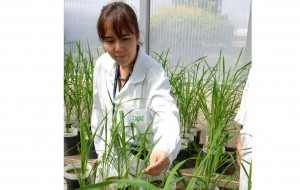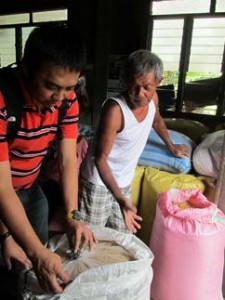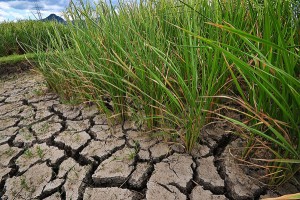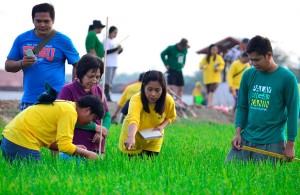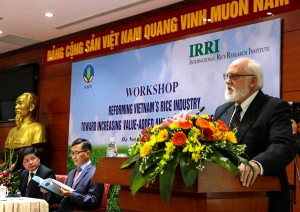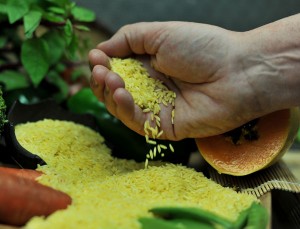
New Delhi – About 10 million of the poorest and most disadvantaged rice farmers have been given access to climate-smart rice varieties, which includes flood-tolerant ones.
“Swarna-Sub1 changed my life,” said Mr. Trilochan Parida, a farmer at the Dekheta Village of Puri in Odisha, India. Floods ravage Trilochan’s rice field every year. Flooding of four days or more usually means a painful loss of the crop as well as of any expected income. In 2008, however, an amazing thing happened: Trilochan saw his rice rise back to life after having been submerged for two weeks.
Swarna-Sub1 is a flood-tolerant rice variety developed by the Philippines-based International Rice Research Institute (IRRI). It was bred from a popular Indian variety, Swarna, which has been upgraded with SUB1, the gene for flood tolerance.
Trilochan is one of millions of farmers who have found that there is a way out of losing their rice crop from regular flooding. They are no longer at the mercy of the seasons, which they have been for generations.
Millions more are bound to be reached as a multistakeholder effort to make life better for these farmers has recently received funding to carry on its work for another five years. Climate-smart rice varieties are made to especially thrive in environments affected by flooding, drought, cold temperatures, and soils that are too salty or contain too much iron that leads to iron toxicity.
The Bill & Melinda Gates Foundation will fund the third phase of the IRRI-led Stress-Tolerant Rice for Africa and South Asia (STRASA) project with USD 32.77 million for five more years. The STRASA project was initiated in 2007, with its first two phases funded with about USD 20 million each.
STRASA is holding its inception and planning meeting for its third phase this week, 20-23 May 2014, in New Delhi, India. Expected to attend are some 250 participants from South Asia and Africa, with secretaries of agriculture from India, Bangladesh, and Nepal joining the opening session.
Partners of the project responsible for each of its major objectives—drought, submergence, salinity/sodicity, and seed multiplication and dissemination—will report on their respective progress in the first two phases and plan for the third.
“Under the past phases of the project, 16 climate-smart rice varieties tolerant of flood, drought, and salinity were released in various countries in South Asia; about 14 such varieties were released in sub-Saharan Africa. Several more are in the process of being released,” said Abdelbagi Ismail, IRRI scientist and STRASA project leader.
In addition to improving varieties and distributing seeds, the STRASA project also trains farmers and scientists in producing good-quality seeds. Through the project’s capacity-building component, 74,000 farmers—including 19,400 women farmers—underwent training in seed production.
The project has also influenced regional policies through enhanced cross-border sharing of information. This has helped facilitate the faster release of climate-smart varieties and the broader sharing of seeds in Asia and sub-Saharan Africa, especially among poor farmers who are most affected by climate change.
“An estimated 140,000 tons of seed of these varieties were produced between 2011 and 2013. These seed releases are estimated to have reached over ten million farmers, covering over 2.5 million hectares of rice land.” said Dr. Ismail. This is double the initial target of 5 million farmers reached.
IRRI collaborates with more than 550 partners in getting climate-smart rice varieties to farmers in South Asia and Africa. These partners include national agricultural research and extension programs, government agencies, nongovernment organizations, and private sector actors, including seed producers.

